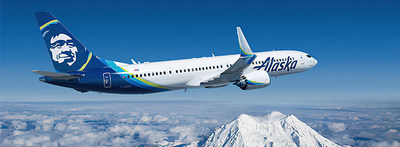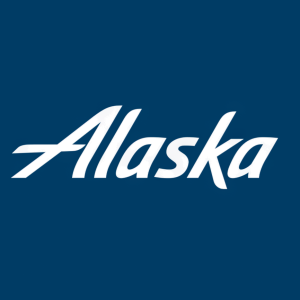Alaska Airlines launches new program to advance sustainable aviation fuels through corporate partnerships, shared learning
Alaska Airlines has launched a program aimed at advancing sustainable aviation fuels (SAF) as part of its Ever Green initiative. Following a successful partnership with Microsoft in 2020, the new program engages corporate customers to purchase SAF credits, raising awareness for decarbonization efforts in business travel. Participants include Boeing and Washington State University, collaborating to address barriers to SAF scalability. SAF can significantly reduce carbon emissions by up to 80%. Alaska Airlines maintains its commitment to achieving net-zero carbon emissions by 2040 with a roadmap focusing on sustainability.
- Launch of sustainable aviation fuels program enhances corporate partnerships.
- Collaboration with major firms like Microsoft and Boeing boosts credibility.
- SAF is identified as a crucial solution for reducing aviation carbon emissions.
- Commitment to net-zero emissions by 2040 aligns with growing environmental standards.
- SAF currently constitutes less than 1% of total fuel use, indicating scalability challenges.
- Barriers such as feedstock accessibility and infrastructure remain obstacles to SAF's commercialization.
Insights
Analyzing...
Launch builds on 2020 program which marked first-in-the-US agreement with corporate partners to reduce business travel emissions through sustainable aviation fuels.
SEATTLE, Aug. 11, 2022 /PRNewswire/ -- Alaska Airlines is taking the next step in advancing sustainable aviation fuels (SAF) as part of Alaska's Ever Green program for improvements in environmental sustainability. Today, Alaska launched a program to engage its corporate customers in the decarbonization journey through purchase of SAF credits and continued efforts to expand education and awareness about opportunities to improve the sustainability of business travel including through use of SAF. The program builds on a first-in-the-US program launched with Microsoft in 2020 to reduce corporate business travel emissions through corporate partnerships.
"Launching this program is another step toward our net zero goal and an important step to bringing SAF to scale," said Diana Birkett Rakow, senior vice president of public affairs and sustainability, Alaska Airlines. "While SAF is imperative to aviation's decarbonization journey, there are multiple barriers we must overcome to make SAF commercially-viable at scale. We believe these barriers are best addressed when we work together within the aviation community and across sectors. Our goals with this program are to support our customers' sustainability goals by providing SAF credits, to continue increasing awareness of the barriers and opportunities to advancing SAF, and to leverage the knowledge of this growing community to accelerate our collective progress."
The program launches with participation from Microsoft, Boeing and Washington State University (WSU). Microsoft has also committed to reducing the scope 3 emissions of their business travel with Alaska. Program participants will further deepen the experience with pilot book and claim systems and build upon those efforts to advance awareness and education on sustainable travel topics among all corporate customers.
"We are proud to build on our long-standing partnership with Alaska, along with other corporate and academic leaders like Microsoft and WSU, to help catalyze the scaling of sustainable aviation fuel," said Sheila Remes, vice president of environmental sustainability, Boeing. "We will need 700-1,000 times increase in the amount of SAF if we are to meet the industry's commitment to net zero by 2050 and partnerships and new ideas like these are critical to meeting that goal."
Alaska's program includes Boeing and WSU as aviation and academic value chain partners to share knowledge and advancements in sustainable business travel with corporate participants. Together, participants will collaborate to advance sustainability in business travel, increase education and awareness, and identify and act on opportunities for collective action.
"WSU has long been a national leader in climate and sustainability research, including in the development and adoption of SAF," said Kirk Schulz, president of WSU. "We look forward to supporting this coalition of forward-looking companies committed to decarbonizing air travel."
SAF is currently available in volumes amounting to less than one percent of total fuel use but is a safe, certified fuel that meets all jet fuel standards and can reduce carbon emissions by as much as
Last year, Alaska announced its commitment and five-part roadmap to reduce the company's carbon emissions to net-zero by 2040, including SAF as the most significant opportunity to reduce carbon emissions over the next few decades. Additionally, Alaska set 2025 goals to improve its impact relative to carbon, waste, and water.
![]() View original content to download multimedia:https://www.prnewswire.com/news-releases/alaska-airlines-launches-new-program-to-advance-sustainable-aviation-fuels-through-corporate-partnerships-shared-learning-301604053.html
View original content to download multimedia:https://www.prnewswire.com/news-releases/alaska-airlines-launches-new-program-to-advance-sustainable-aviation-fuels-through-corporate-partnerships-shared-learning-301604053.html
SOURCE Alaska Airlines








